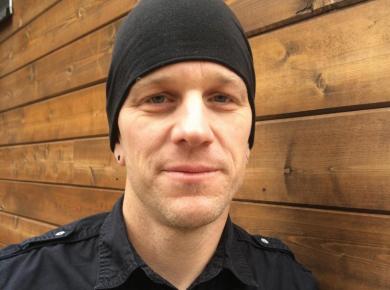Posted: July 13, 2016
Hospitality: Exploring what it means to offer hospitality as followers of Christ
Shocking photographs published in the news media awoke the Western world to the refugee crisis on September 2015. With a heightened awareness of the issue, the Anabaptist communion worldwide considers what it means to welcome the stranger as those from different religious backgrounds enter our neighbourhoods.
The April 2016 issue of Courier/Correo/Courrier seeks to discern the variety of reasons why Anabaptist communities from around the world come together to form MWC. In the articles that follow, writers reflect on the question: How does Christ’s love for us motivate and guide our response to strangers in our local context?
The heart of a stranger
I once heard a newcomer to Canada describe the relief he felt at being welcomed into a church community of other recent immigrants after a long period of disorientation. His words stuck with me:
They knew how to embrace the stranger because they had the heart of a stranger themselves.
In other words, those who know firsthand the experience of being outsiders – the desperation and loneliness that come along with being separated from all that is familiar and all that gives one meaning, security and stability; the frustration that comes with not being able speak the language; what it means to long for embrace – these ones have the heart of a stranger. These ones have hearts that are willing to make room.
Choosing strangeness
And yet, the experience of being a “stranger” in any meaningful sense is foreign to many of us. Some of us have experienced discomfort as we navigate unfamiliar contexts of our own choosing. However, these are mostly the inconveniences borne out of choices exercised within the parameters of privilege. Others have never even had the luxury of being a “stranger” because we’ve never been able to travel far beyond the places of our birth.
But how many of us have been driven to distant shores by violence and political instability and poverty? Have we ever arrived in an unfamiliar land with few possessions, no language and years of trauma in the rearview mirror? Have we ventured forth in contexts where few people look or sound like us? Where the customs are incomprehensible, the beliefs impenetrable? How many of us have been strangers in any sense deep enough to produce “the heart of a stranger?”
So, what would it take to develop the “heart of a stranger” in our present cultural moment, with so much polarizing discourse among Christians (and others) about the Syrian refugee crisis and what it asks of us? There is so much fear and suspicion, so many angry and misinformed words, so much reactionary and impulsive dismissal, so many arms protectively closing rather than opening in embrace. How might we move beyond these reflexive responses to better paths?
Memory and imagination
Could it be as simple as looking a few generations back and remembering that nearly all of us are a part of a story of strangers on some level? Could our unwillingness to embrace the stranger be due, in part, to the fact that our hearts have lost or forgotten or never developed the ability to put ourselves in the stranger’s shoes?
Could our chief problem be little more than a failure of memory or imagination – a failure either to remember what it was like to be the “other” that longs for welcome or to even imagine this possibility? Could the “heart of a stranger” be as near to each one of us as choosing to remember and imagine differently?
In the Hebrew Scriptures, the divine command to care for the stranger is tied directly to the fact that the people of Israel were also strangers once (Deuteronomy 10:19). In the Gospel of Matthew, Jesus sums up all of the Law and the Prophets – and “all” is a pretty comprehensive word, it should be remembered – in the simple exhortation to do to others as we would have done to us (Matthew 22:40). The former urges us to better memory, the latter to better imagination. We need both, if we are ever to develop the right kind of hearts. And once we begin to take these steps – once we try to remember and imagine in better ways – it becomes easier to intentionally move toward the stranger.
The church that I am a part of is welcoming nine people from Syria into our community and into our lives. We, along with others in our community, have spent months preparing for their arrival. We’ve secured a house, applied a fresh coat of paint, purchased food, clothing and toys. We have made connections with others in our community: other Christian churches, folks from the university, a group of local doctors, members of the local Muslim community. We have had opportunities to share meals with Syrian families already in Lethbridge and to learn from them in impromptu cooking classes and cultural background information evenings. We have made new friends.
We have tried to develop the heart of a stranger. And in so doing, we have discovered that the heart of a stranger is actually not far from any of us as long as we are willing to remember and imagine in the right ways.
Ryan Dueck is pastor of Lethbridge Mennonite Church in Alberta, Canada. The church is part of a local Ecumenical Social Action Group that is sponsoring two Syrian refugee families to resettle in Lethbridge. He regularly blogs at ryandueck.com and contributes to Wondering Fair, “an online café” for discussing matters of faith.
This article first appeared in Courier/Correo/Courrier April 2016

Comments: